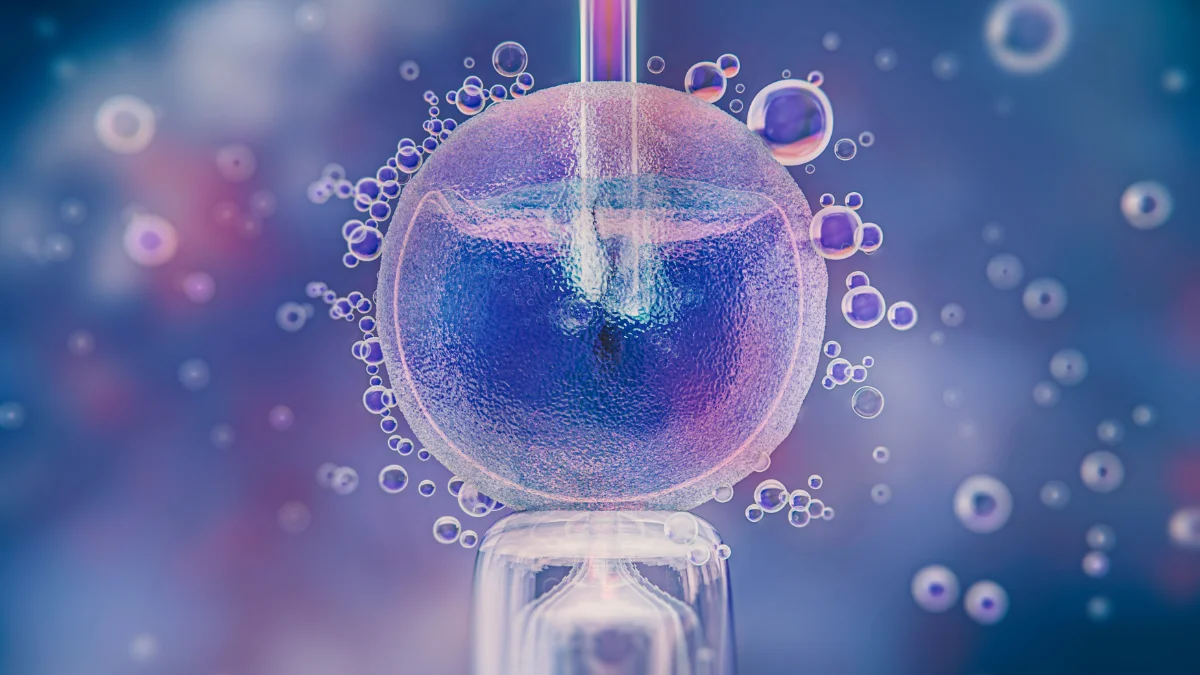In Vitro Fertilisation (IVF) remains a beacon of hope for countless couples navigating the complexities of infertility. It is a highly advanced fertility treatment designed to assist with conception, offering a pathway to parenthood that may have seemed unreachable. This guide delves into the IVF journey, elucidating each step, addressing potential risks, and shedding light on the outcomes.
Why IVF is Done?
In Vitro Fertilisation (IVF) offers a vital lifeline for individuals and couples facing infertility, providing a chance to conceive when other methods have not succeeded. At its foundation, it is pursued as a treatment for a spectrum of fertility issues, from blocked or damaged fallopian tubes and ovulation disorders to more complex conditions such as endometriosis or genetic disorders. Additionally, it serves as a proactive measure for those seeking to preserve fertility in the face of cancer treatment or other health concerns that may impede the ability to conceive in the future. Beyond these clinical reasons, IVF extends hope to those experiencing unexplained infertility, offering a path to parenthood where the cause of infertility remains unidentified.
Who Can Benefit from IVF?
Guidelines suggest IVF as an option for women under the age of 43 who have not conceived after two years of regular, unprotected intercourse or after 12 cycles of artificial insemination. While these eligibility criteria provide a general framework, the final determination for NHS-funded IVF treatment can vary depending on local healthcare authorities. Private clinic options are also available for those searching for alternative paths to parenthood.
A Step-By-Step Exploration of IVF
The journey through IVF is multifaceted, involving several critical stages each designed with the ultimate goal of achieving a successful pregnancy.
Initial Steps
Preparation begins with comprehensive consultations, characterized by an array of diagnostic investigations aimed at tailoring the most effective treatment plan. These include:
- Ovarian Reserve Testing: To ascertain the quantity and quality of eggs available.
- Semen Analysis: To evaluate sperm health and functionality.
- Infectious Disease Screening: An essential safety step for all parties involved.
- Mock Embryo Transfer: A rehearsal procedure to ascertain the best route for embryo transfer to the uterus.
The Five Stages of IVF
- Suppression of the Natural Menstrual Cycle: Utilizing medication, the natural cycle is temporarily halted, allowing for controlled ovarian stimulation.
- Ovarian Stimulation: Fertility medications are prescribed to stimulate the ovaries, aiming for the development of multiple eggs.
- Egg Retrieval: A meticulous procedure is conducted to collect the eggs directly from the ovaries.
- Fertilisation and Embryo Development: Retrieved eggs are fertilized with sperm in a controlled laboratory setting. The resulting embryos are closely monitored as they develop.
- Embryo Transfer: The most viable embryo(s) are selected for transfer into the uterus, where implantation and pregnancy initiation occur.
Post-Procedure
Following the embryo transfer, a period of waiting begins, often described as the “two-week wait” until a pregnancy test can be accurately conducted. During this time, patients might experience mild symptoms such as bloating or cramping but are generally able to resume normal activities.
Success Rates
The success of IVF varies significantly with factors such as age and the specific fertility issues being addressed. Though challenges are present, many find solace and success in IVF, with advancing technology continually improving outcomes.
Lifestyle and IVF Success
Simple lifestyle modifications, such as maintaining a healthy weight and abstaining from alcohol, smoking, and excessive caffeine, can improve IVF success rates. These changes foster an optimal environment for both conception and pregnancy.
Results and Beyond
Approximately two weeks post-embryo transfer, a blood test is administered to confirm pregnancy. Outcomes can vary significantly, influenced by factors such as age, fertility history, and specific infertility diagnoses.
Risks and Disadvantages of IVF
While IVF presents a promising option for many, it is accompanied by certain risks and disadvantages worth considering:
- Multiple Pregnancies: The potential for twins or multiples can increase the risk for both the mother and infants.
- Ovarian Hyperstimulation Syndrome (OHSS): A condition where the ovaries become swollen and painful due to overstimulation.
- Emotional and Financial Burden: The process can be emotionally taxing and financially demanding.
- Ectopic Pregnancy: A rare but serious complication where the embryo implants outside the uterus.
Is IVF Painful?
The question of pain is common. While discomfort levels vary from one individual to another, most find the procedures, such as egg retrieval, to be minimally invasive, with mild sedation available to alleviate discomfort.
How Many Injections for IVF Treatment?
The treatment involves a series of injections, primarily during the ovarian stimulation phase. The exact number can vary based on the individual’s response to medication but is closely monitored by medical professionals.
IVF Babies Disadvantages
Fears surrounding the health of IVF babies persist. Research, however, reassures us that the vast majority of IVF babies are just as healthy as those conceived naturally. While a slightly elevated risk of certain complications exists, advancements in IVF techniques continue to minimise these risks.
IVF Pregnancy Risks
Pregnancy via IVF does come with heightened vigilance regarding potential complications such as ovarian hyperstimulation syndrome (OHSS) and the likelihood of multiple births. Employing single embryo transfer (SET) when viable, and vigilant monitoring, mitigates these risks significantly.
Choosing Avicenna International Hospital for Your IVF Journey
At Avicenna International Hospital, we understand the intricacies of the IVF process and are dedicated to providing an empathetic, informed journey towards parenthood. Our facilities, combined with a team of fertility experts, ensure that each step of your IVF journey is handled with precision and care. For individuals and couples considering IVF, we invite you to contact us.
Several factors play a role, including age, the reason for infertility, and lifestyle factors such as smoking and weight.
Yes, particularly when multiple embryos are transferred. However, practices are increasingly shifting towards SET to reduce this risk.
Extensive studies suggest that IVF babies are as healthy as those conceived naturally, with no significant increase in congenital disabilities or developmental issues.







